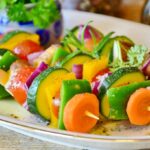BETHESDA, Md., Dec. 14, 2021 /PRNewswire/ — Many of us look forward to celebrations during the holidays, yet it is also a time when some people are more likely to drink beyond their limits than at other times of the year. Some people will suffer adverse consequences that range from fights to falls to traffic crashes. This holiday season, it is particularly important to take measures to protect your own health and that of your loved ones due to the coronavirus pandemic. This includes following the everyday practices recommended by the U.S. Centers for Disease Control and Prevention to reduce the risk of contracting and spreading the coronavirus, as well as following guidelines for holiday celebrations and small gatherings.
Myths Persist
Despite the potential dangers, myths about drinking persist, which—for some—can prove fatal. Scientific studies supported by the National Institute on Alcohol Abuse and Alcoholism provide important information that challenges these widespread, yet incorrect, beliefs about how quickly alcohol affects the body and how long the effects of drinking last.
Alcohol’s Effects Begin Quickly, Before You Know It!
People may not recognize that critical decision- making abilities and driving-related skills are already diminished long before they show overt signs of intoxication.
Initially, alcohol may appear to act as a stimulant, so people who drink may feel upbeat and excited. But don’t be fooled. Alcohol decreases inhibitions and judgment and can lead to reckless decisions.
As people consume more alcohol, reaction times get longer and behavior becomes poorly controlled and sometimes even aggressive—leading to fights and other types of violence. Continued drinking causes the slurred speech and loss of balance that is typically associated with being drunk.
Alcohol can also cause blackouts—which are gaps in a person’s memory while they were intoxicated. These gaps happen when a person drinks enough alcohol to temporarily block the transfer of memories from short-term to long-term storage—known as memory consolidation—in a brain area called the hippocampus. At higher blood alcohol concentration levels, alcohol acts as a clear depressant, which can cause people who drink to pass out if the dose is high enough. At even higher levels, people who drink face the danger of life-threatening alcohol overdose due to the suppression of vital life functions.
Even When Drinking Stops—Alcohol’s Effects Do Not Stop
During an evening of drinking, it’s easy to misjudge how long alcohol’s effects last. For example, many people believe that they will begin to sober up—and be able to drive safely—once they stop drinking and have a cup of coffee. The truth is that alcohol continues to affect the brain and body long after the last drink has been finished. Even after someone stops drinking, alcohol in the stomach and intestine continues to enter the bloodstream, resulting in impaired judgment and coordination for hours.
Before You Celebrate—Plan Ahead
Of course, we don’t intend to harm anyone when we celebrate during the holiday season. Yet, violence and traffic fatalities associated with alcohol misuse persist, and myths about drinking live on—even though scientific studies have documented how alcohol affects the brain and body.
Because individuals differ, the specific effects of alcohol on an individual will vary. But certain facts are clear—there’s no way to make good decisions when you are intoxicated and there’s no way to sober up faster.
So, this holiday season, do not underestimate the effects of alcohol. Don’t believe you can beat them, or they may beat you. Think before you drink, and practice measures to avoid the spread of the coronavirus to yourself and others.
4 tips to keep in mind if you host a holiday gathering:
- Offer a variety of nonalcoholic drinks—water, juices, sparkling sodas. Nonalcoholic drinks help counteract the dehydrating effects of alcohol. Also, the other fluids may slow the rate of alcohol absorption into the body and reduce the peak alcohol concentration in the blood. They also provide your guests with alternatives to alcohol.
- Provide a variety of healthy foods and snacks. Food can slow the absorption of alcohol and reduce the peak level of alcohol in the body by about one-third. Food can also minimize stomach irritation and gastrointestinal distress the following day.
- Help your guests get home safely—use designated drivers and taxis. Anyone getting behind the wheel of a car should not have ingested any alcohol.
- If you are a parent, understand the underage drinking laws—and set a good example.
Sobering Up—Myths and Facts
Myth: Drink coffee. Caffeine will sober you up.
Fact: Caffeine may help with drowsiness
but not with the effects of alcohol on decision-making or coordination. The body needs time to metabolize (break down) alcohol and then to return to normal. Also, when caffeine wears off, your body will need to deal with post- caffeine sleepiness, which adds to alcohol-induced sleepiness. There are no quick cures—only time will help.
Myth: You can drive as long as you are not slurring your words or acting erratically.
Fact: The coordination needed for driving is compromised long before you show signs of intoxication and your reaction time is slowed. Plus, the sedative effects of alcohol increase your risk of nodding off or losing attention behind the wheel.
Myth: The warm feeling you get from drinking alcohol insulates you from the cold of winter. When you’re drinking, there’s no need to wear a coat when it’s cold outside.
Fact: Alcohol widens the tiny blood vessels right under the skin, so they quickly fill with warm blood. This makes you feel warm or hot, and can cause your skin to flush and perspire. But your body temperature is actually dropping, because while alcohol is pulling warmth from your body’s core to the skin surface, it is also depressing the area of your brain that controls temperature regulation. In cold environments, this can lead to hypothermia. So, wear a coat when it’s cold outside, particularly if you are drinking alcohol.
Have a safe holiday season!
For information about alcohol use disorder and how to get help, please visit: https://alcoholtreatment.niaaa.nih.gov.





Wonderful web site. Lots of useful info here. I’m sending it to a few friends ans additionally sharing in delicious. And obviously, thanks to your effort!
The kids focus meditation at http://www.JeevaJoy.com has become essential for our morning routine.